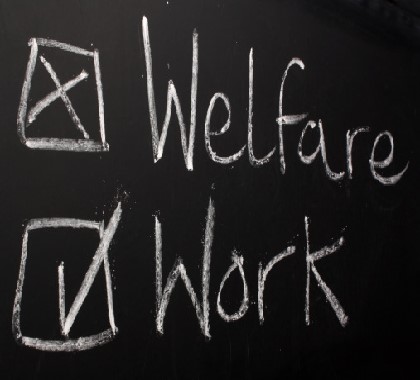Congress sent President Donald Trump a resolution blocking a U.S. Department of Labor (DOL) regulation that prevents state governments from testing individuals for evidence of illegal drug use when applying for entitlements.
Using a process created by the Congressional Review Act in 1996, a simple majority of lawmakers in the House and Senate expressed disapproval of the DOL rules on March 21.
Trump signed the resolution into law on March 31, blocking the DOL rules.
On February 7, the White House published a press release supporting the resolution and promising Trump’s advisors would encourage the president to sign it. Later that month, Trump promised Conservative Political Action Conference attendees it is “time for all Americans to get off welfare and get back to work.”
During his February 24 speech, referring to welfare reform, Trump added, “You’re going to love it.”
Ensuring Help for Needy
Gregg Pfister, legislative relations director for the Foundation for Government Accountability, says scammers are ripping off government entitlement programs such as Medicaid and the Temporary Aid for Needy Families program.
“Taxpayer money is a limited resource, and, unfortunately, it is often a target of fraudsters,” Pfister said. “In Illinois, over 14,000 dead people were discovered on the Medicaid rolls. In Florida, over 3,500 people were found collecting food stamps in that state while also receiving benefits in a neighboring state.
“Every penny wasted is money that cannot go to those in dire circumstances, such as the nearly 600,000 individuals nationwide trapped on Medicaid waiting lists,” Pfister said.
Poverty Trap
Pfister says government handouts keep people stuck in poverty.
“The longer an individual is stuck on welfare, the longer their life circumstances are not improving,” Pfister said. “Success should be measured by the number of people transitioning off these programs and onto the path of self-sustainability, which begins with employment.”
Time-Tested Solution
Peter Ferrara, a senior fellow for entitlement and budget policy at The Heartland Institute, which publishes Budget & Tax News, says Congress and Trump should look to past successes for ideas on how to reform government entitlements.
“Welfare reform should be based on extending the block grants for just one federal welfare program in the 1996 reforms—for the old, New Deal, Aid to Families with Dependent Children program—to all of the close to 150 federal and state means-tested welfare programs,” Ferrara said. “Those 1996 reforms got two-thirds of those dependent on AFDC off of welfare and working instead.”
Everyone Is a Winner
When President Bill Clinton signed the Personal Responsibility and Work Opportunity Reconciliation Act of 1996 into law, everyone benefitted, Ferrara says.
“The poor gained because their incomes increased by 25 percent as a result, and the taxpayers gained because, after 10 years, the costs of the AFDC program were 50 percent less than they would have been otherwise, based on prior trends.”
Using block grants to give state governments more flexibility is a time-tested recipe for success, Ferrara says.
“The more those reforms are extended through block grants to all federal and state means- tested welfare programs, the more both the poor and taxpayers will be better off,” Ferrara said. “Block grants, as in the 1996 reforms, were President Ronald Reagan’s plan for all welfare programs. I am hoping that this is President Trump’s plan.”




